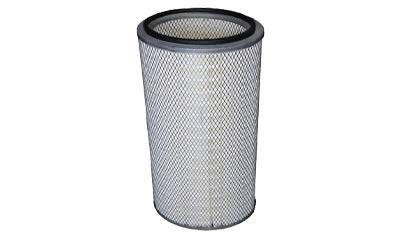Introduction:
In the dynamic landscape of industrial filtration, the choice of filter material plays a pivotal role in determining the efficiency, durability, and overall performance of a system. Among the plethora of options available, PolyTetraFluoroEthylene (PTFE) filters stand out for their exceptional properties. Let’s delve into the top five benefits that make PTFE filters an invaluable choice in industrial applications.
1. Unrivaled Chemical Resistance:
One of the standout features of PTFE filters is their unparalleled resistance to a wide range of chemicals. PTFE, commonly known as Teflon, exhibits an exceptional ability to withstand corrosive substances, making it an ideal choice for industries where exposure to aggressive chemicals is a constant concern. This resistance ensures longevity and reliability in environments where other filter materials might succumb to chemical wear.
2. High Temperature Tolerance:
PTFE filters excel in applications involving high temperatures. With a melting point of around 327 degrees Celsius (621 degrees Fahrenheit), PTFE maintains its structural integrity and filtration efficiency even in extreme heat. This property makes PTFE filters suitable for processes where elevated temperatures are a constant, ensuring consistent and reliable filtration performance.
3. Non-Stick Properties for Easy Maintenance:
The non-stick nature of PTFE is a game-changer in industrial filtration. Unlike traditional filters that may suffer from clogging due to particle adhesion, PTFE filters prevent particles from sticking to the surface. This inherent non-stick quality not only ensures efficient filtration over time but also simplifies the cleaning process. PTFE filters are easier to clean, resulting in reduced downtime for maintenance and longer intervals between replacements.
4. Superior Filtration Efficiency:
PTFE filters often boast high Minimum Efficiency Reporting Values (MERV), indicating excellent filtration efficiency. These filters are capable of capturing fine particles, including sub-micron particles, providing a cleaner and safer working environment. The superior filtration performance of PTFE filters contributes to enhanced air quality and compliance with stringent industry standards.
5. Longevity and Cost-Effectiveness:
While PTFE filters may have a higher upfront cost compared to some other filter materials, their longevity and resistance to chemical wear contribute to cost-effectiveness over the long term. PTFE filters require less frequent replacement, reducing downtime and maintenance costs. The extended lifespan of PTFE filters, combined with their other benefits, makes them a wise investment for businesses looking for a durable and efficient filtration solution.
Conclusion:
In conclusion, the advantages of using Wrentham PTFE filters in industrial applications are compelling. From unrivaled chemical resistance and high-temperature tolerance to non-stick properties, superior filtration efficiency, and cost-effectiveness, PTFE filters emerge as a versatile and reliable choice. Businesses operating in challenging environments where chemical exposure, high temperatures, and fine particle filtration are critical can significantly benefit from incorporating PTFE filters into their industrial processes. As technology continues to advance, PTFE filters stand as a testament to innovation in industrial filtration, offering a robust solution to meet the evolving needs of modern industries.


















